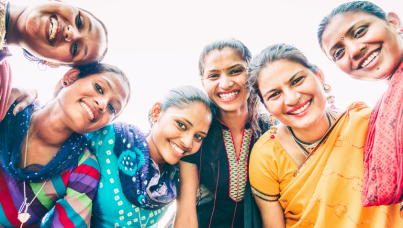

India emerges among top 3 most optimistic markets; most global citizens on the contrary are pessimistic about the future: Ipsos What Worries the World Global Survey, June 2024 Report
The June 2024 Report of the Ipsos What Worries the World global survey shows that India is placed among the top three most optimistic markets, while most global citizens were seen to be downbeat about the future.
The top 3 most optimistic markets were Singapore (79%), Indonesia (70%) and India (69%) with majority of their citizens believing, their country is moving in the right direction (Indonesia has overtaken India from last wave in ranking). Notably, in comparison, only 38% of global citizens claimed to be believing that their country is headed in the right direction, with pessimism rife. Further the countries with lowest optimism levels about the future were, Peru (8%), South Africa (20%), South Korea (21%) and Türkiye (21%).

Commenting on the findings of the survey, Amit Adarkar, Ipsos India CEO said, “As a market, India has been quite stable. The govt has been taking steps to offset the impact of global macro conditions on the citizens, to a large extent. Whether it is fuel prices or inflation; growing economy, now the 5th largest and fuelled by domestic consumption; or India being a dominant voice of Global South; being a part of several global forums, whether BRICS, or QUAD, special invitee to the G7 Summit; with strides in technology and a mighty military power, is resonating well with the citizens and they feel re-assured of the future.”
Ipsos What Worries the World also captures social and political issues faced by citizens in their markets apart from outlook.
Urban Indians were seen to be most worried about inflation (38%) (-3%) in June 2024, though there was a -3% reduction in worry around this issue; followed by unemployment (35%) (-9%), seeing a -9% drop in worry levels, education (26%) (+4%), financial and political corruption (23%) (-4%), and crime and violence (22%) =.
Global citizens were most worried about inflation (33%), crime and violence (30%), poverty and social inequality (29%), unemployment (27%), and financial and political corruption (25%).
"While inflation and unemployment continue to be our biggest worries, the good news is that we see some improvement in worry levels. More for unemployment and to some extent for inflation. The Union Budget and monsoons could further improve cost of essential commodities, food items and create more jobs with new allocations to provide impetus to sectors."
Methodology
The 29-country Global Advisor survey was conducted between May 24th 2024 and June 7th 2024 via the Ipsos Online Panel system among 25,520 adults aged 18-74 in Canada, Israel, Malaysia, South Africa, Türkiye and the United States, 20-74 in Indonesia and Thailand, 21-74 in Singapore, and 16-74 in all other nations. The “29 Country Average” reflects the average result for all the countries where the survey was conducted. It has not been adjusted to the population size of each country and is not intended to suggest a total result."
The sample consists of approximately 1000+ individuals in each of Australia, Belgium, Brazil, Canada, France, Germany, Great Britain, Italy, Japan, Spain, Sweden, and the US, and approximately 500+ individuals in each of Argentina, Chile, Colombia, Hungary, India, Indonesia, Israel, Malaysia, Mexico, the Netherlands, Peru, Poland, Singapore, South Africa, South Korea, Thailand and Türkiye. The samples in Argentina, Australia, Belgium, Canada, France, Germany, Great Britain, Hungary, Italy, Japan, the Netherlands, Poland, South Korea, Spain, Sweden, and the US can be taken as representative of these countries’ general adult population under the age of 75. The samples in Brazil, Chile, Colombia, India, Indonesia, Malaysia, Mexico, Peru, Singapore, South Africa, Thailand and Türkiye are more urban, more educated, and/or more affluent than the general population. The survey results for these markets should be viewed as reflecting the views of the more “connected” segment of these populations. Weighting has been employed to balance demographics and ensure that the sample’s composition reflects that of the adult population according to the most recent census data. The precision of Ipsos online polls are calculated using a credibility interval with a poll of 1,000 accurate to +/- 3.5 percentage points and of 500 accurate to +/- 5.0 percentage points. For more information on the Ipsos use of credibility intervals, please visit the Ipsos website. Where results do not sum to 100 or the ‘difference’ appears to be +/-1 more/less than the actual, this may be due to rounding, multiple responses, or the exclusion of don't knows or not stated responses. The publication of these findings abides by local rules and regulations. The sample in India consists of approximately 2,200 individuals, of whom 1,800 were interviewed face-to-face and 400 were interviewed online using the IndiaBus platform. |



